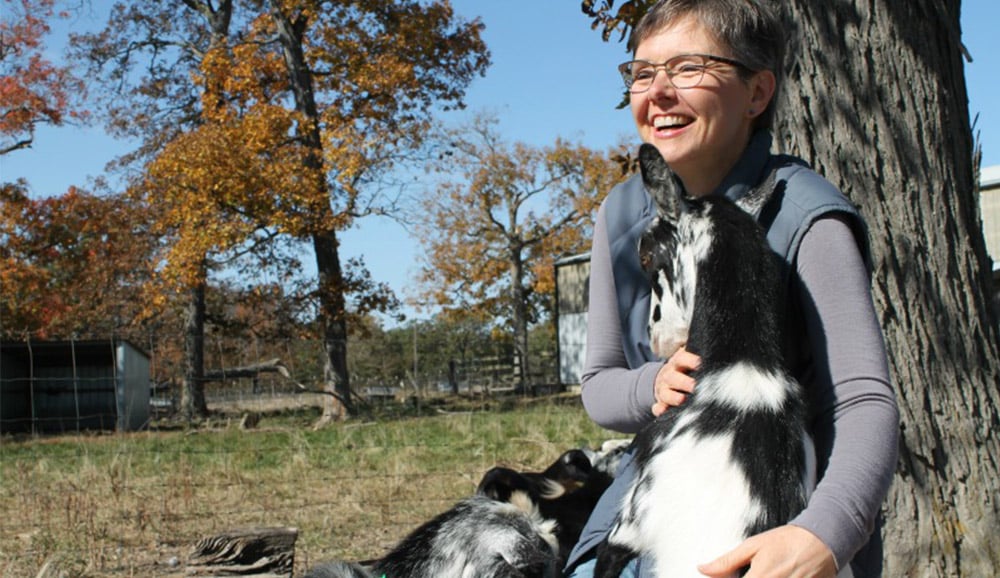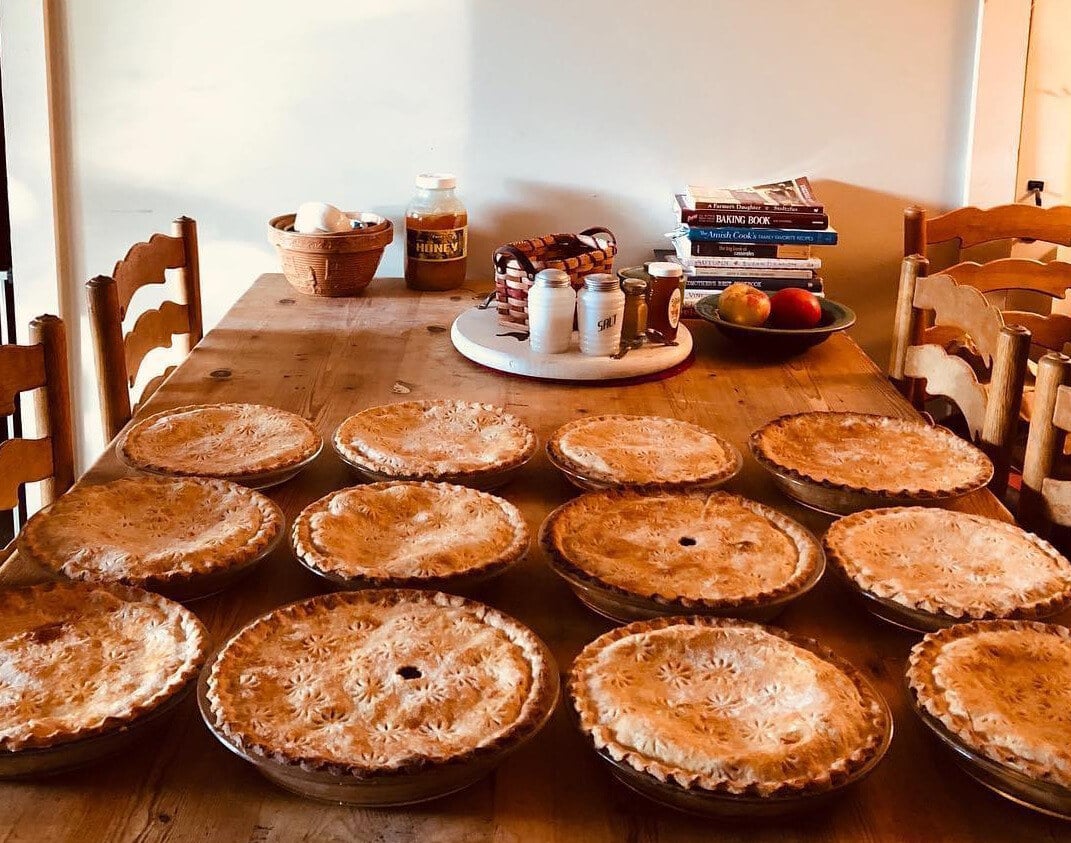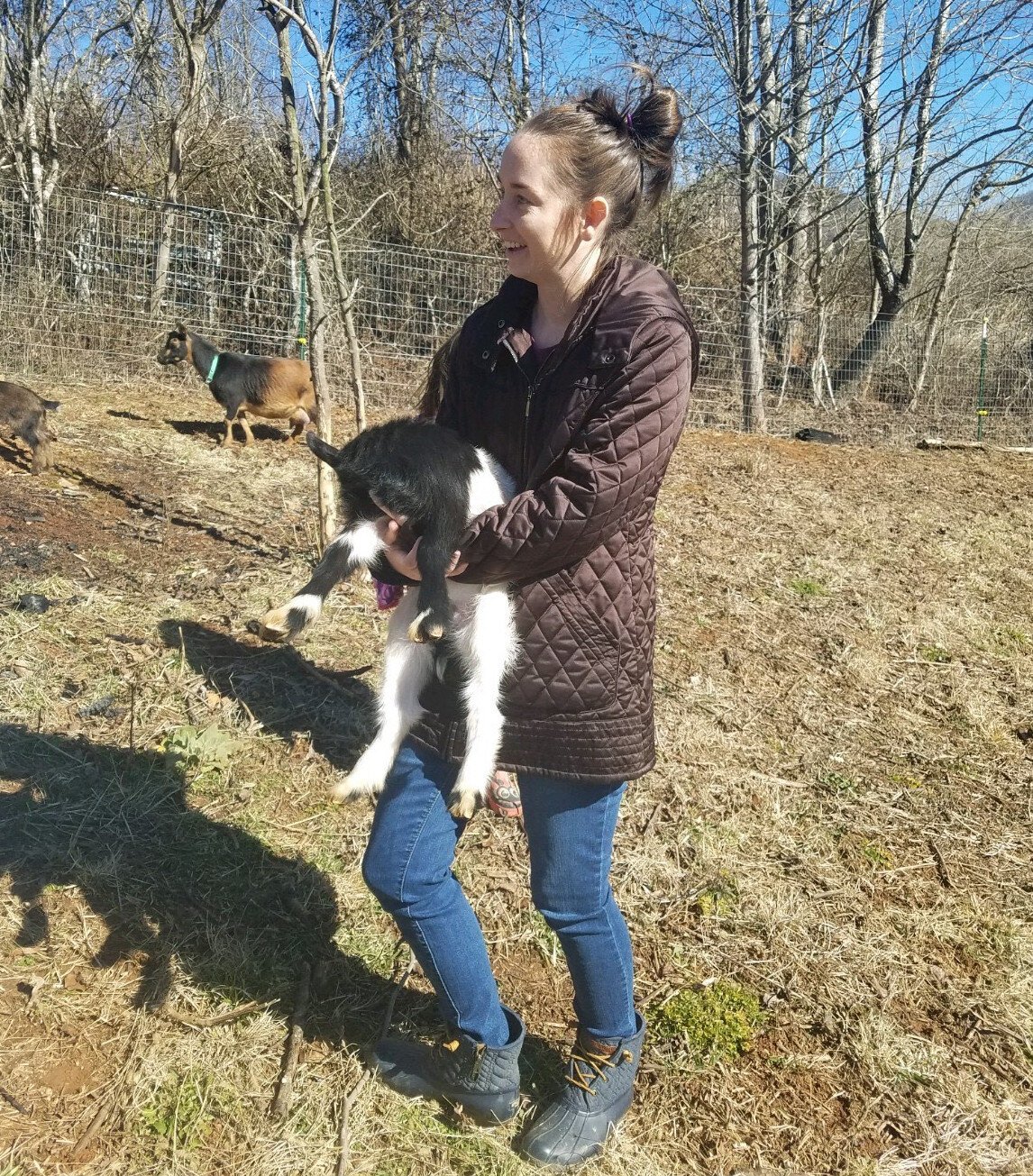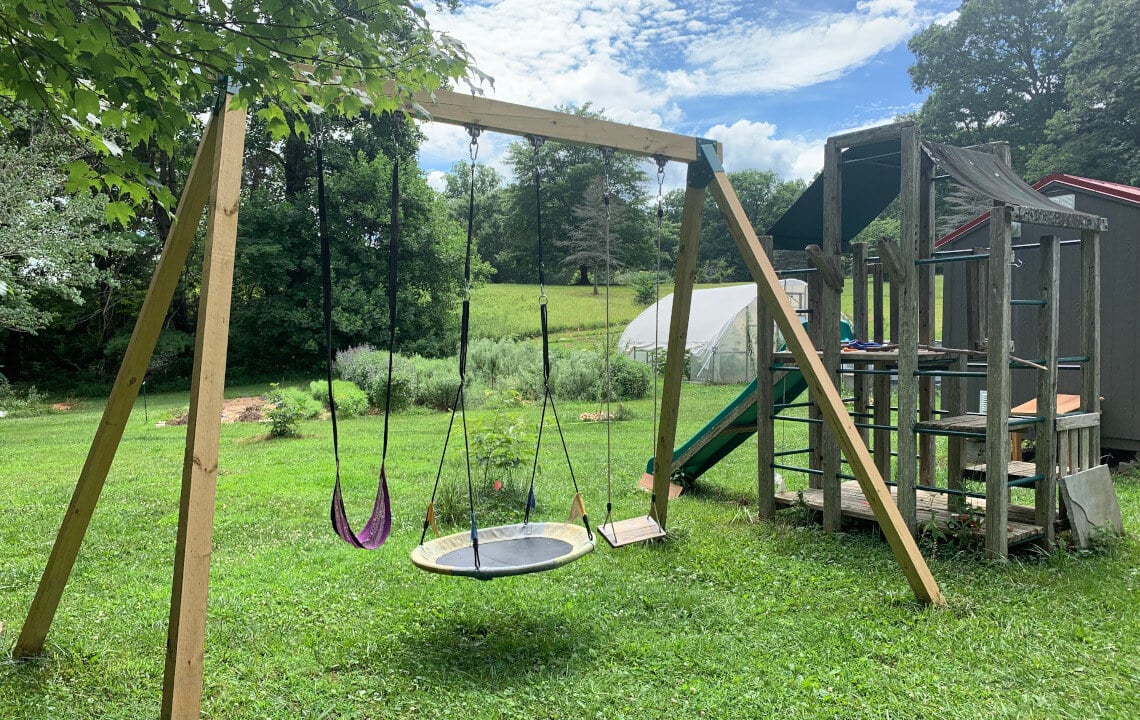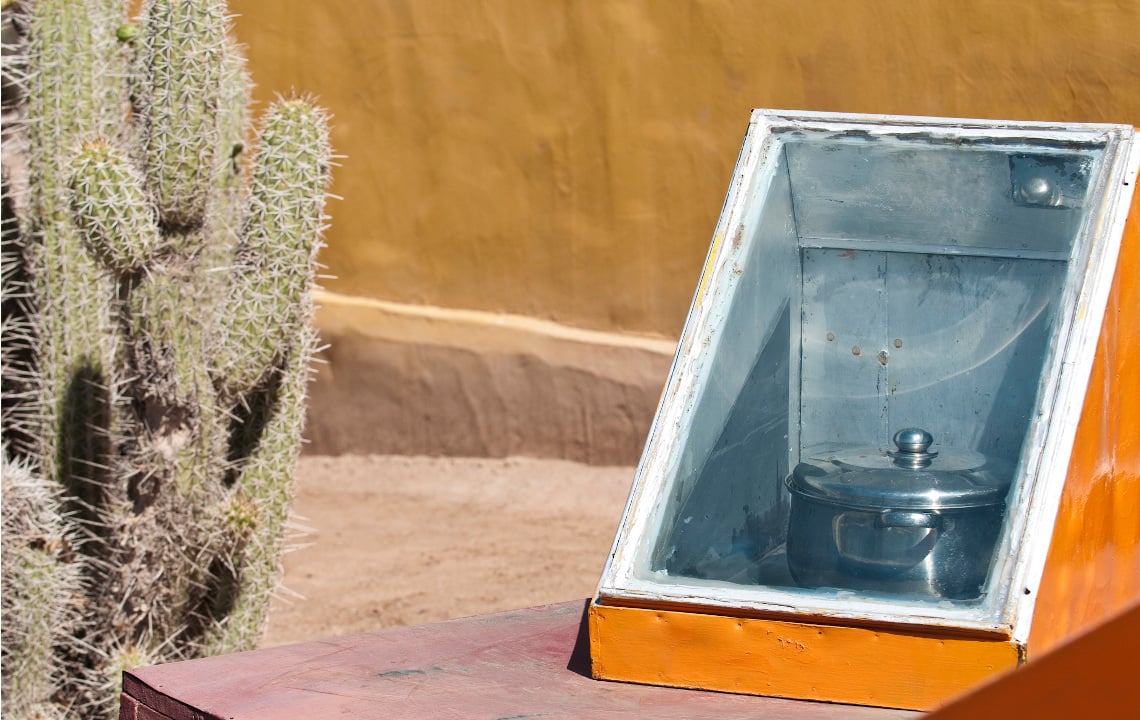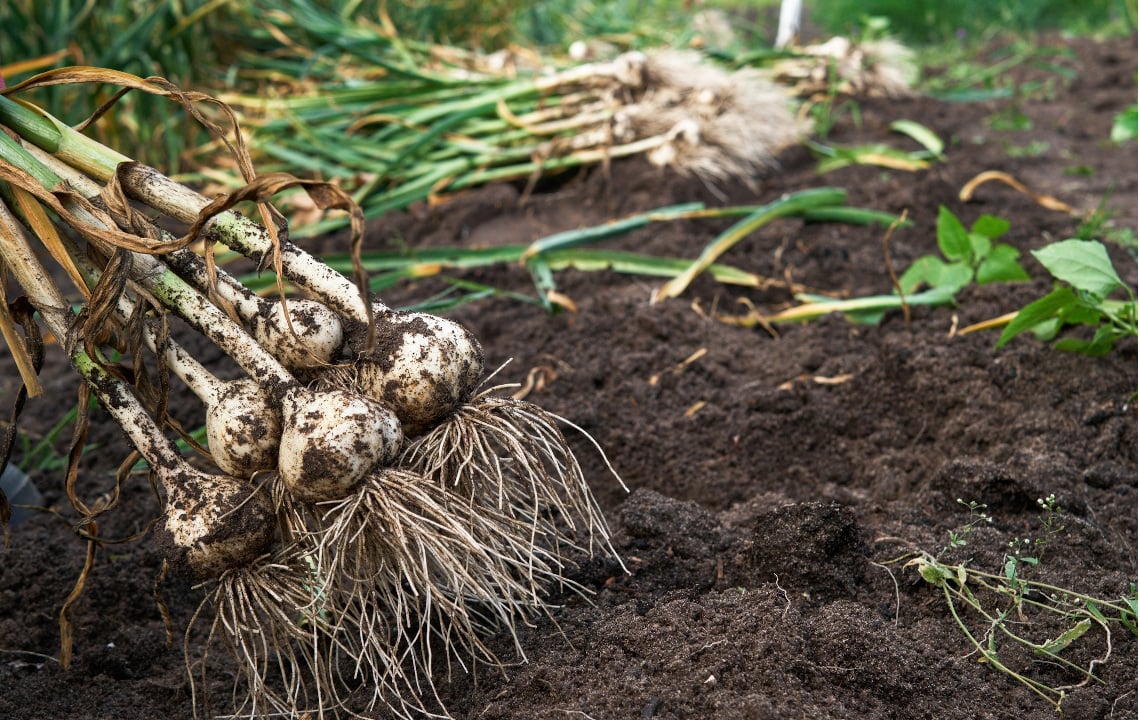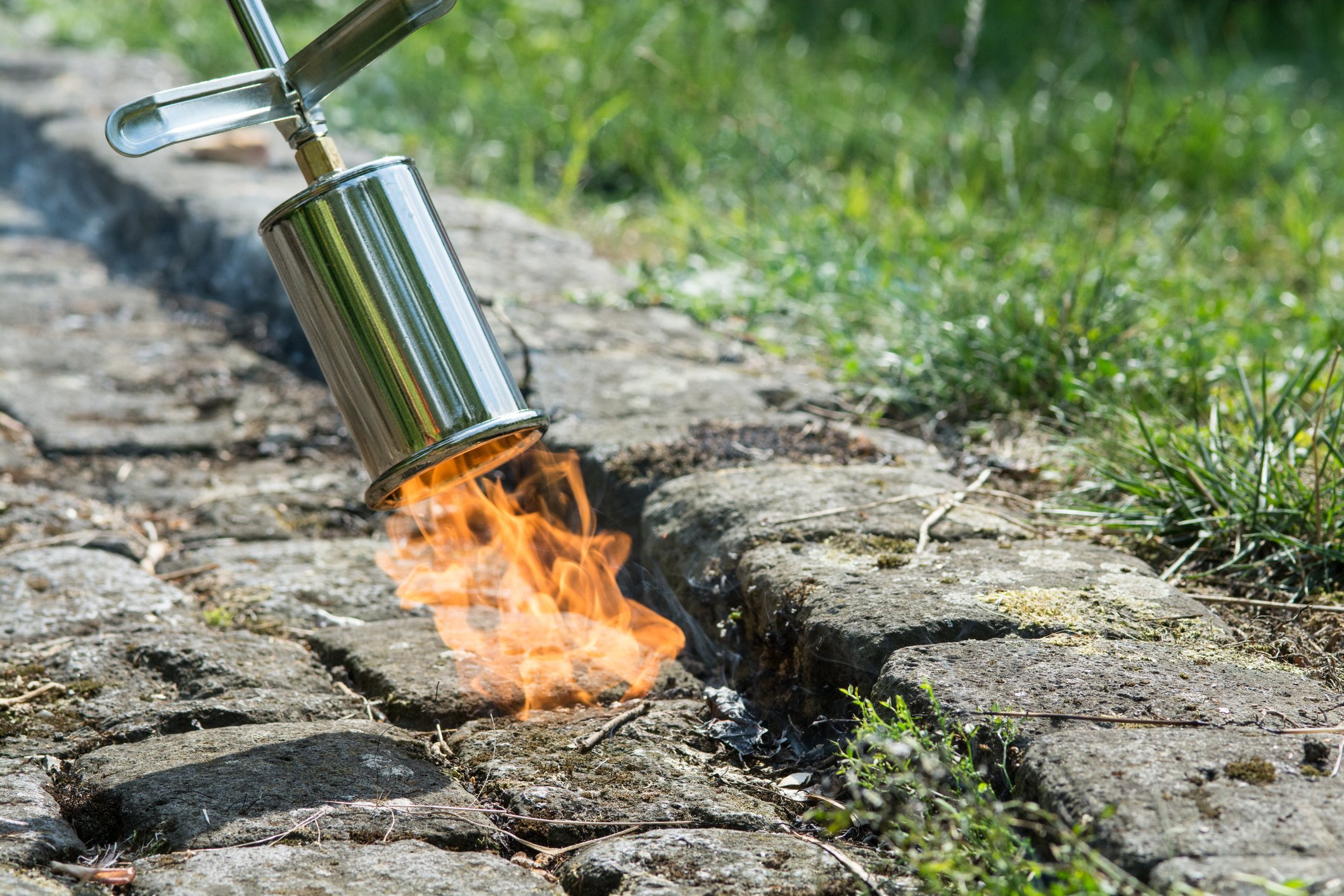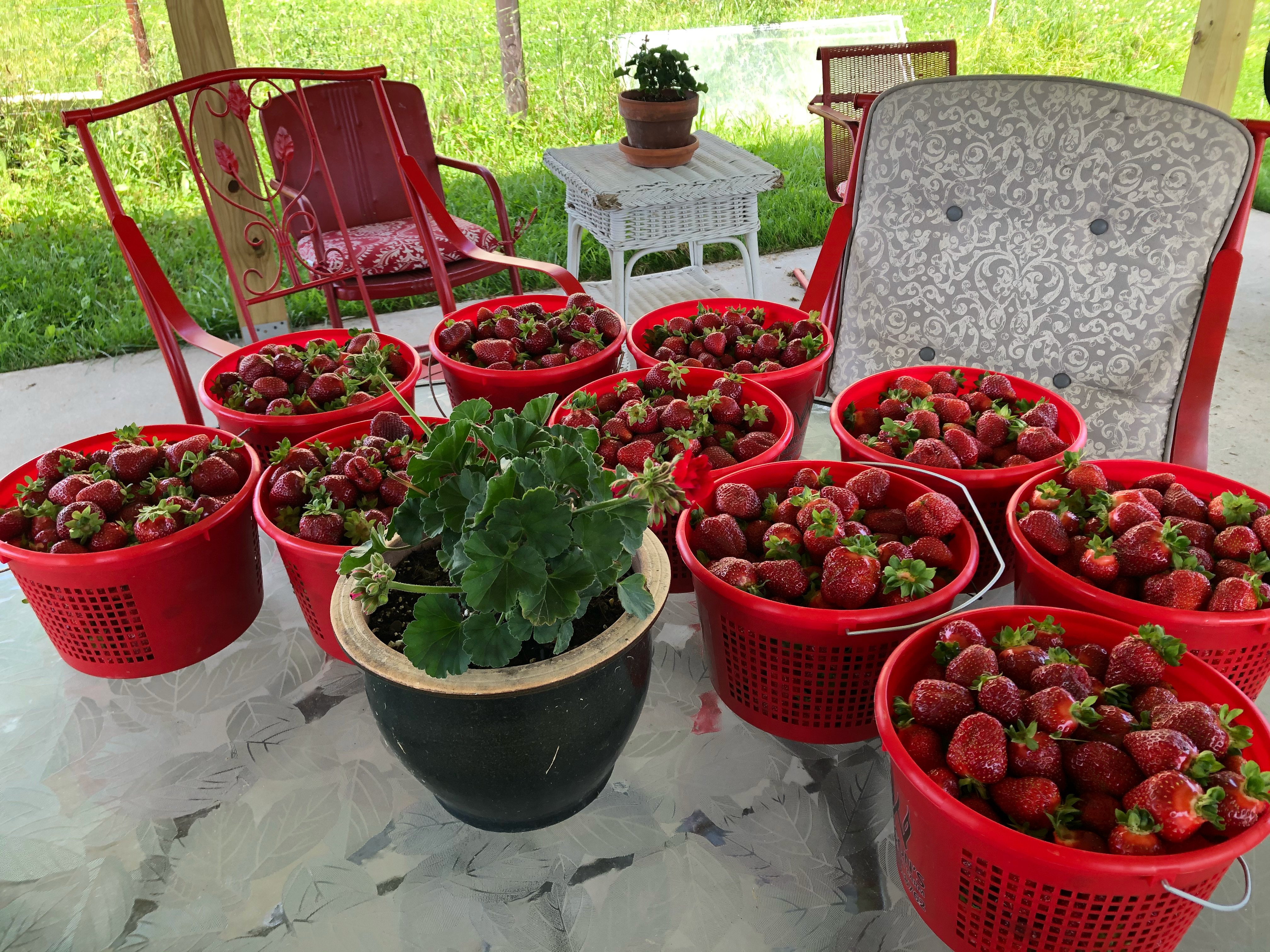People turn to homesteading for a variety of reasons: to be more self-sufficient, because they love animals, to make a side-income on their property, to grow their own food or to connect more with nature.
However, a growing number of people in cities and rural areas are turning to homesteading to improve their health.
We’ve covered much of the latest science and research on how farm life, rural living and hobby farming can improve your health in previous articles—but there’s nothing quite like hearing it straight “from the horse's mouth.”
Which is why we’ve put together a little series on “Homesteading for Health,” featuring the real-life stories of remarkable individuals whose lives and health have been transformed by homesteading/hobby farming.
To kick things off, we interviewed a homesteading/health-focused blogger: Deborah Niemann, “The Thrifty Homesteader.”
Deborah, a blogger, author, speaker and health coach, has become a household name on the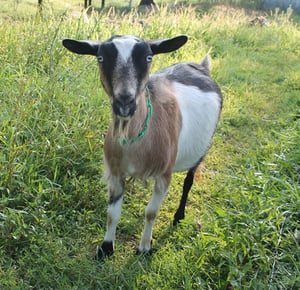 homesteading circuit for her advice on raising animals (especially goats), making personal care products, cooking, gardening and health.
homesteading circuit for her advice on raising animals (especially goats), making personal care products, cooking, gardening and health.
And despite her present reputation as “a goat expert,” she began her homesteading journey in 2002 purely for health reasons.
Deborah was a sickly child and wanted something better for her own children.
In her own words, “It was insane how often I was sick as a child. I remember my mother being so frustrated and asking the doctor if there was anything we could do to keep me from being sick. He said some children are just sickly and that’s the way it was with me.”
The odd thing was, none of her brothers and sisters were sickly—but her siblings shared one thing in common.
“I was adopted and we all lived on a farm until I was 3 years old. So all my brothers and sisters grew up in a natural setting eating all this natural, homemade food. Then we moved to town when I was 3 years old, and my mother was so excited and liberated that she didn’t have to cook anymore! So I grew up most of my life eating processed food and tons of sugar every single day. I didn’t spend a ton of time outdoors and my mom never let me get dirty.”
Years later, Deborah discovered it was her diet and super-sterile lifestyle that fueled her sickly childhood.
But it wasn’t until her first pregnancy that she became an advocate for nutrition and health.
It all started in a childbirth class, where Deborah was first introduced to the link between what we eat and how we feel.
“I truly thought eating a hamburger equated to a healthy meal. Then in this childbirth class they had us do things like look at the list of ingredients on a box of Jiffy Blueberry Muffins.
“And I remember feeling so upset to discover there were no blueberries in these blueberry muffins! Here I thought I was doing a good thing and there’s no fruit in there, it’s artificial everything—I felt so betrayed.”
From that moment on, Deborah began cooking from scratch, eliminating processed foods and learning everything she could about how food and nutrition impact health.
When her daughter was born in 1987, she got to witness first-hand how healthy a child can be when supplied with good nutrition and a healthy lifestyle.
She also became aware of the controversy and food safety issues around factory farming and decided to become a vegetarian.
But finding naturally-grown foods was a challenge back in the 1980s and 1990s, which is what led Deborah to homesteading.
“We had lived in the city up until this point. We decided to move to the country because, back in the 1990s, it was hard to find healthy foods,” Deborah says. “You had to go to a health food store or drive out to the country.
“It was even harder to decode labels. I remember buying cage-free eggs because I thought it meant the chickens were free-range. Then one day I looked up the company’s website only to discover they kept their chickens in these awful, overcrowded barns with no access to the outdoors! That made me angry because, once again, I felt misled.”
After some soul searching, Deborah felt the only way they could get truly healthy food on a regular basis was to grow it themselves.
“So, we bought 32 acres of land in the middle of nowhere and started our own farm/homestead with no previous experience.”
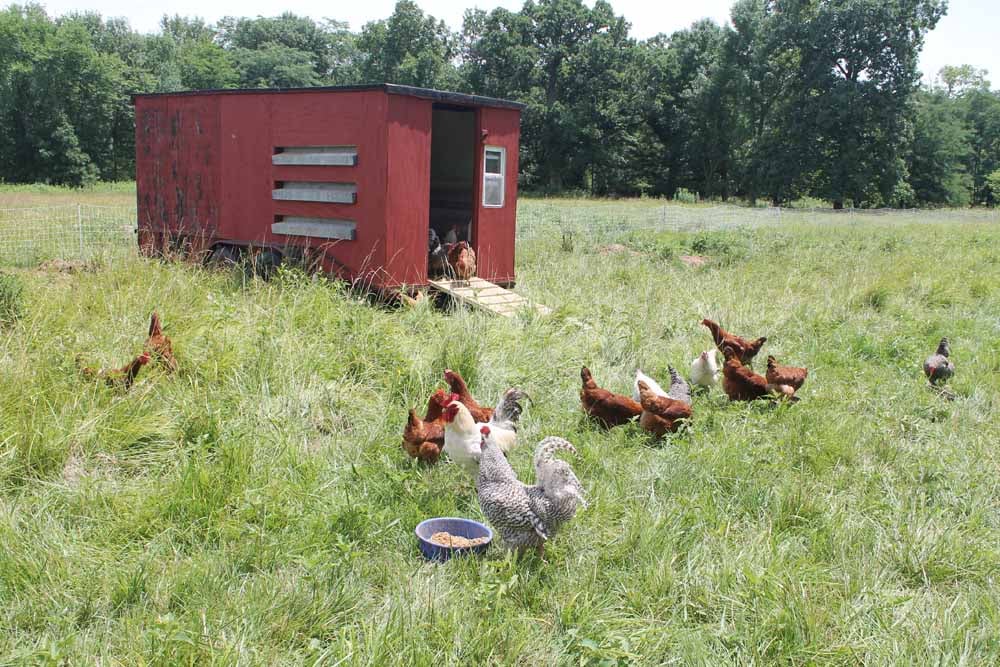
Despite the stress of figuring out how to run a 32-acre homestead, Deborah realized a change in her own health straight away.
“Before we moved to the country, I would still come down with colds and the flu regularly. Since moving out here 17 years ago, I’ve only had the flu twice and two or three colds...that’s it.”
Deborah’s children were also rarely sick growing up. She attributes much of this to their country lifestyle, which included homegrown, home-cooked food; loads of fresh vegetables and fruits; daily contact with barnyard animals; and lots of fresh air, raw dairy products, homemade personal care products and access to nature.
“As my children grew up, the lights just started going on: they were breastfed, they’re outdoors all the time, they eat nutritious food–all this has contributed to their foundation of health.
“They are adults now, and when they went to college, they were not used to getting sick. Since they grew up the way they did, they saw the connection between what they ate/drank/did and how they felt.
“And they said to me: ‘Oh my God, I had no idea how lucky I was growing up.’ That felt good!”
Homesteading also inspired a change in their vegetarian lifestyle.
“We were vegetarian when we moved out here, but we ate eggs and thus started out raising chickens... and that’s how we started eating meat again.
“We wanted to hatch our own chickens, but that meant we always had too many roosters. This creates an awful situation for the flock because they wear down the hens and wind up killing each other.
“So, after much discussion, we realized this was ridiculous, and felt it was more humane to raise the roosters to provide meat for our family; and I believe we were healthier for it.”
They then branched out to raising goats, which they use for cheese, yogurt and meat; geese for meat, down and weeding; cattle, pigs, sheep, ducks and turkeys. They also keep up an extensive garden to supply the majority of their produce needs.
Then, a minor health crisis inspired an expansion of Deborah’s homesteading skills...personal care products.
“I used to be a fragrance junkie,” says Deborah. “I had about five or six different colognes and I would layer on the scents with the soap, the lotion, the powder and the perfume. Then one day I started sneezing and itching all over. I quickly realized it was this scent I was reacting to, so I quit using it and started using another one...and within a couple weeks I was reacting to it too.
“Within a few months I couldn’t wear any of them, and could only use Kiss My Face unscented soap. I was so upset!”
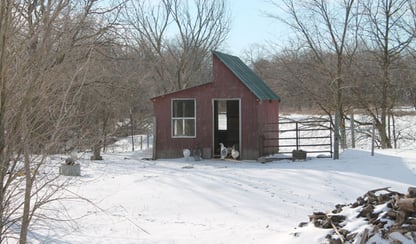 Then one day, Deborah was lamenting to a friend about her situation and her friend suggested: “Well you have goats—why don’t you just make your own soap?”
Then one day, Deborah was lamenting to a friend about her situation and her friend suggested: “Well you have goats—why don’t you just make your own soap?”
“I had no idea what she was talking about. I had never heard about goat milk soap before, but I was excited about using essential oils to get some fragrance back into my life.”
She started experimenting and, so long as she used pure essential oils for the scent, the soaps did not cause a reaction. She started selling her hand-crafted, all-natural soaps locally and expanded into other personal care products.
“I haven’t used fragrance in over 20 years, and I can only imagine if I had continued using them. I could have had cancer by now,” says Deborah.
She shares many of her formulas and techniques in her classes, lectures and her book, Homegrown and Handmade.
How Deborah turned her passion for health and homesteading into a healthy business.
Homesteading is an incredible way to improve your health and happiness, but it is also a good deal of work.
Thankfully, all that work need not go unpaid. Here’s how Deborah’s diversified to create a healthy living off her healthy homestead:
- Writing books. She’s written 5 books to-date:
- Raising Goats Naturally: The Complete Guide to Milk, Meat and More, first and second edition
- Homegrown and Handmade: A Practical Guide to More Self-Reliant Living, first and second edition
- Eco Thrifty: Cheaper, Greener Choices for a Happier, Healthier Life
- Teaching classes on various aspects of homesteading and health
- Speaking/lecturing locally and throughout the country
- Selling personal care products
- Selling eggs and produce from their homestead at farmers’ markets
- Sales from her blog’s online store
- Affiliate commissions from her blog
Deborah also completed her certification as a Health Coach and plans to focus on expanding this aspect of her business.
As with all things farming-related, diversification is the key to making a healthy living homesteading.
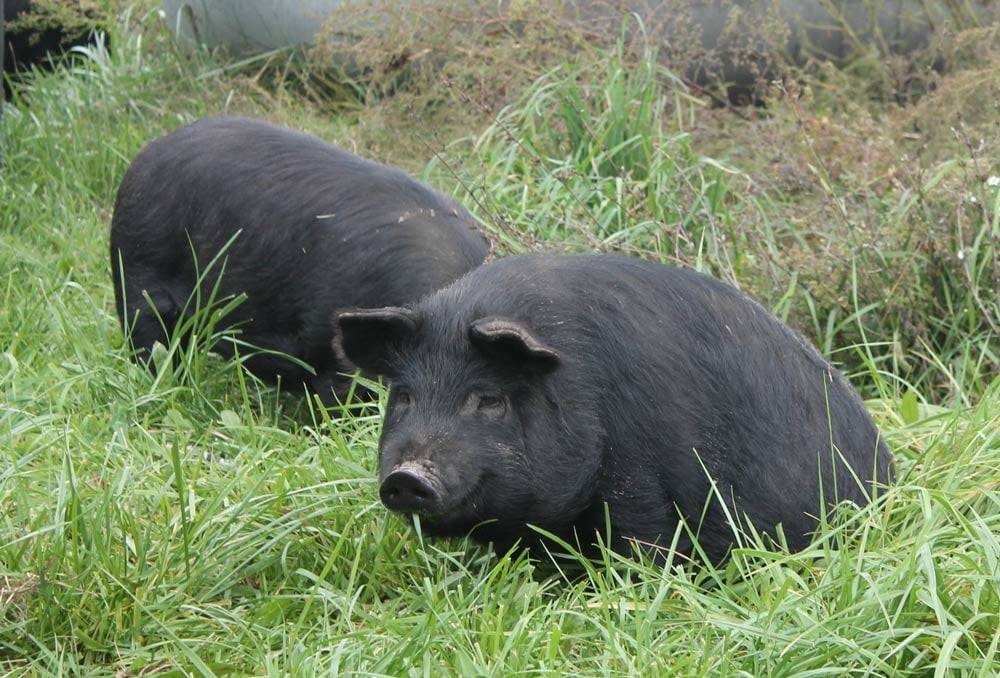
How you can get started Homesteading for Health, no matter where you live:
For those interested in reaping the health benefits of homesteading, Deborah offered these tips:
- “Start with the ‘gateway livestock’—also known as chickens! They’re easy to raise and provide fresh and nutritious eggs.
- “Start a garden and start small, you can even grow stuff like tomatoes, peppers and onions in pots. If you have more outdoor space, the key is to start small, like a 4-foot by 8-foot raised bed. Get a couple tomato plants, some pepper plants, onions and lettuce for fresh salads and salsa. This way you can have some initial success without being overwhelmed. Then expand from there if you want.
- “Remember, you don’t have to do everything yourself these days to be healthy! For example, we don’t raise our own cattle anymore because I know a grass farmer nearby who does that very well, so we get our beef from him.
- “Making your own personal care and household products is easy regardless of where you live. This is a big thing you can do to improve your health while saving the planet.”
Deborah’s story is a powerful testament of the holistic impact homesteading can have on a family’s health.
“It’s funny, after a few years when organics started to get big, I thought: if only I had waited a few years, I could have gotten what I wanted at the store!
“But a couple years later, I realized you can’t necessarily trust all those labels. Just because a processed food is organic doesn’t mean it’s necessarily humane or healthy for you. Even organic dairy is not what is used to be.
“So it’s really a matter of knowing your farmer and farming community. No, you don’t have to move out to the country these days to get healthy food, but you do need to know where your food comes from.
“And yes, I would do it all over again in a heartbeat!”
To learn more about Deborah Niemann’s journey to health, her books, upcoming lectures, classes and health coaching practice, visit her online at: www.thriftyhomesteader.com.


